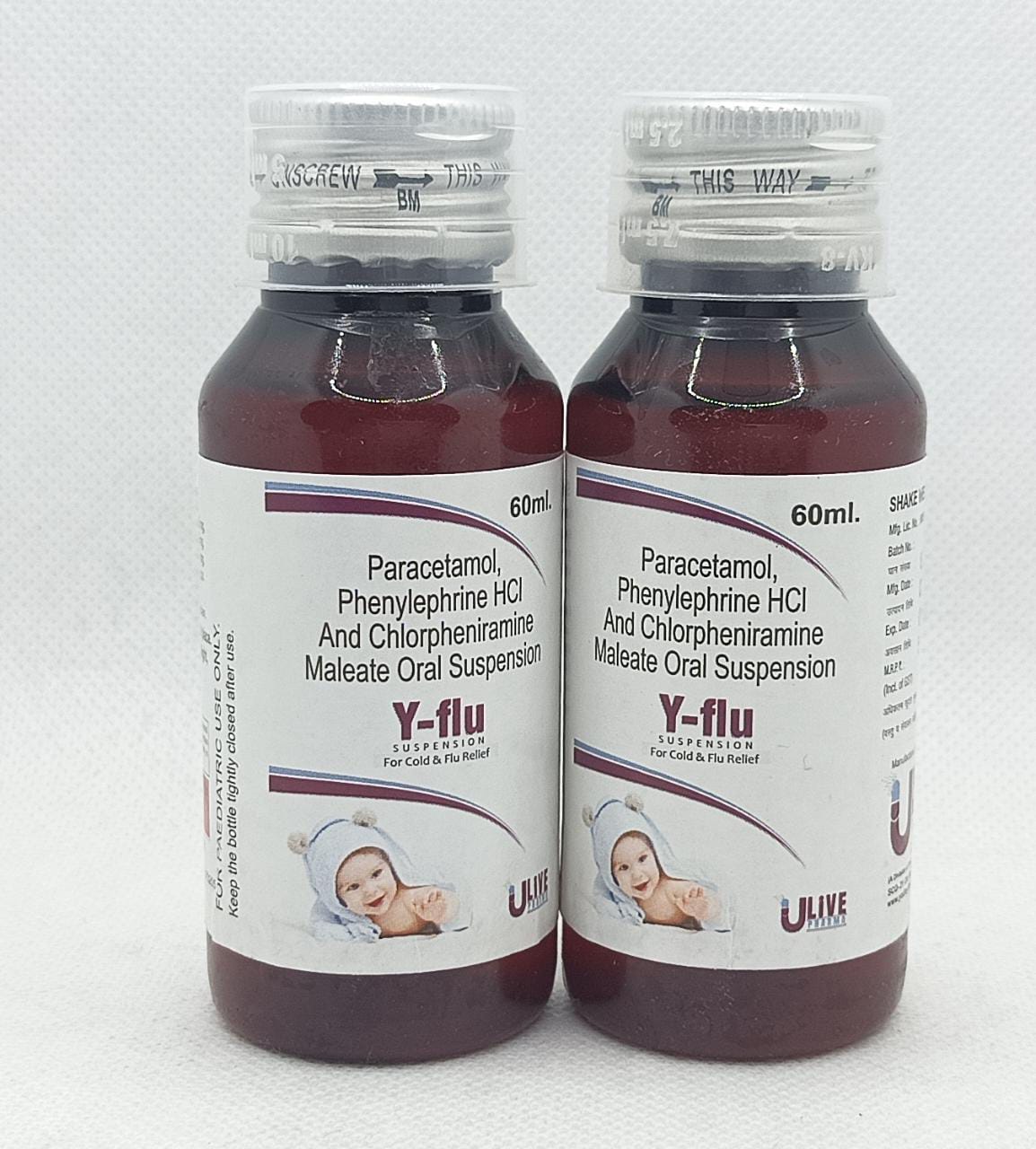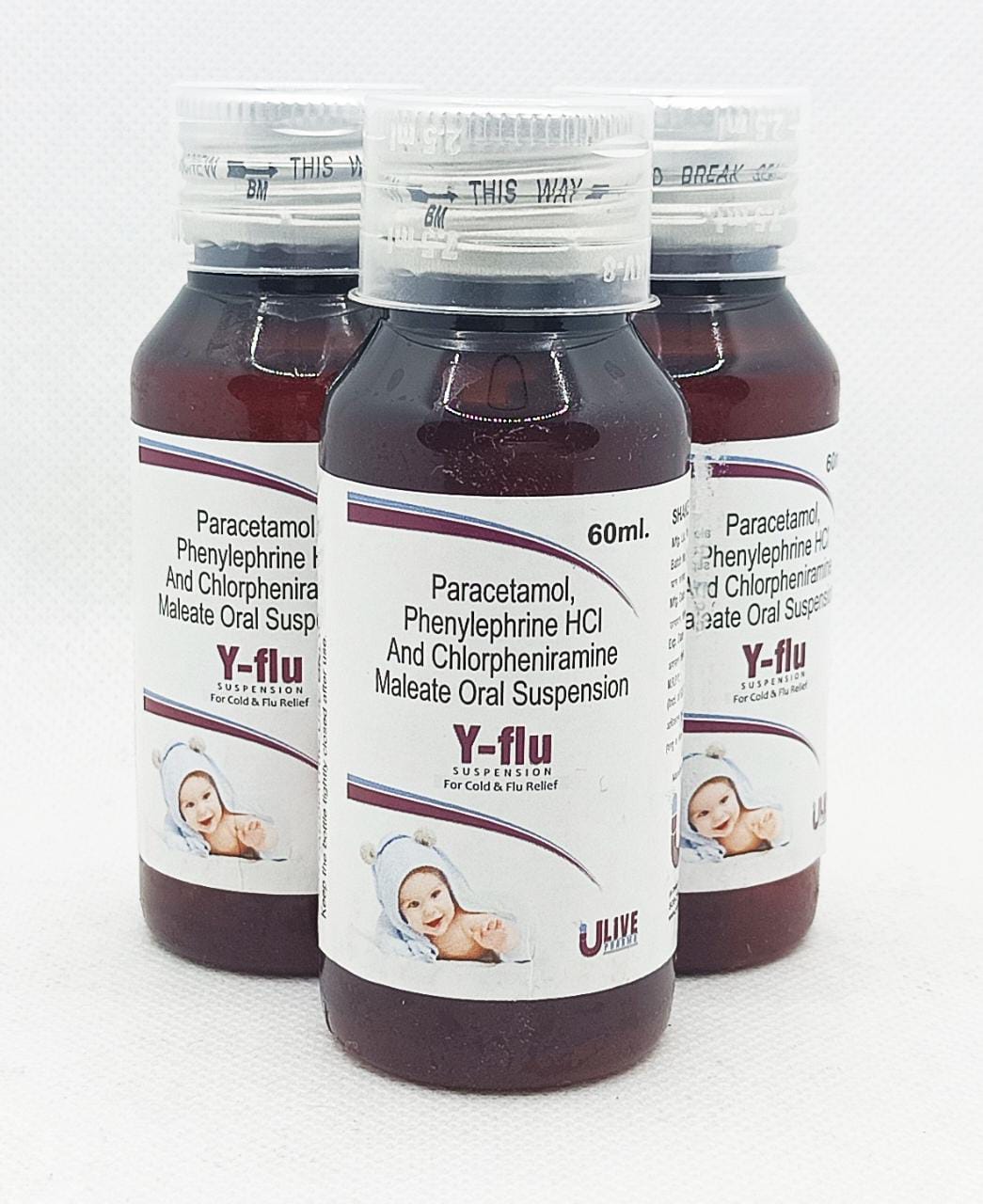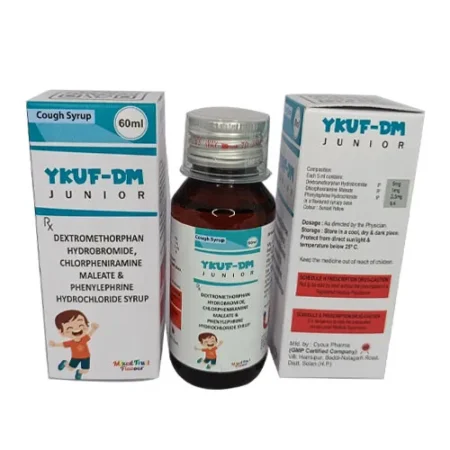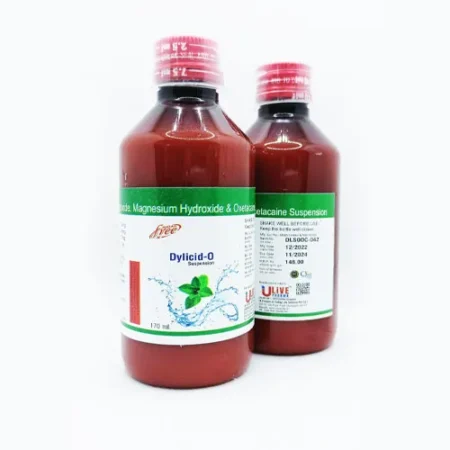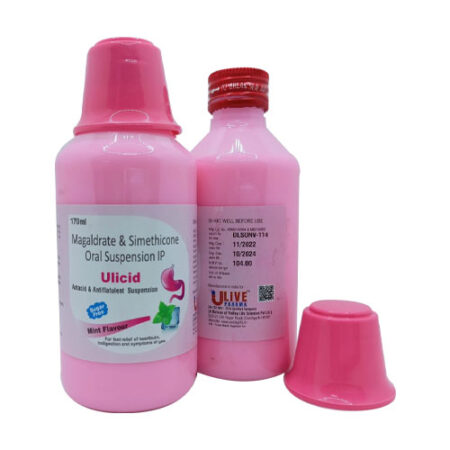
Phenylephrine + Chlorpheniramine + Paracetamol Suspension
Y-Flu Suspension
Phenylephrine, Chlorpheniramine, and Paracetamol Suspension – Y-Flu Suspension is made up of three drugs named Phenylephrine, Chlorpheniramine, and Paracetamol which is used in the treatment of the common cold and flu. Phenylephrine, Chlorpheniramine, and Paracetamol Suspension is a pharmaceutical formulation that combines three active ingredients: phenylephrine, chlorpheniramine, and paracetamol. This suspension is commonly used to provide relief from symptoms associated with various upper respiratory tract infections and allergies, such as the common cold, flu, or hay fever.
Uses of Phenylephrine, Chlorpheniramine, and Paracetamol Suspension
Phenylephrine, Chlorpheniramine, and Paracetamol Suspension is often used to help with symptoms like stuffy nose, sneezing, and fever caused by colds or allergies.
- Nasal congestion: Phenylephrine, a medicine that helps clear stuffy noses, works by making the blood vessels in the nose smaller. This reduces swelling and congestion.
- Chlorpheniramine is a medicine that helps with a runny nose, sneezing, itching, and watery eyes by stopping the body’s reaction to allergies.
- Fever and pain: Paracetamol can help bring down a fever and make you feel better if you have aches and pains from a cold or allergies.
Precaution to use of Phenylephrine, Chlorpheniramine, and Paracetamol Suspension
When giving Phenylephrine, Chlorpheniramine, and Paracetamol pediatric Suspension to children, it’s important to be careful and follow these instructions:
- Age and Weight: Make sure the medicine amount is right for how old the child is and how much they weigh. Obey the doctor’s advice on how much medicine to give your child based on their age.
- Allergies: Tell the doctor if your child is allergic to any medications, foods, or other things, especially if they have had a bad reaction to any of the ingredients in the suspension before.
- Health Background: Give the doctor all the information about the child’s health, especially if they’ve had problems with their liver or kidneys, heart issues, high blood pressure, or any other medical problems in the past.
- Other Medications: Tell the doctor about any other pills, vitamins, or herbal stuff your child is using so they can make sure it won’t cause problems with other medicines.
Watch the child for any bad reactions or side effects, and get medical help if they have any unexpected symptoms.
Direction to use of Phenylephrine, Chlorpheniramine, and Paracetamol Suspension
Phenylephrine + Chlorpheniramine + Paracetamol Suspension can be consumed with or without food. How much medicine you need and for how long will be based on how sick you are. You need to keep taking the medicine even if you start feeling better until the doctor says it’s okay to stop.
Possible Side Effects of Phenylephrine, Chlorpheniramine, and Paracetamol Suspension
Taking this medicine might make you feel sick to your stomach, throw up, feel sleepy, dizzy, or have a headache. If any of these side effects don’t go away or get worse, tell your doctor. Your doctor can help you find ways to prevent or lessen the side effects. Usually, you should use the least amount needed to manage your symptoms.

